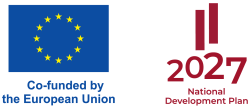On 12 May 2025, the Programme for International Student Assessment (PISA) 2025—the world’s largest and most significant international student skills assessment organised by the Organisation for Economic Co-operation and Development (OECD)—was completed in Latvia.
Nearly 7,000 fifteen-year-old students from 269 schools across Latvia took part in the assessment, completing tasks designed to evaluate their ability to apply knowledge gained in school to real-life situations.
This cycle of the study placed particular emphasis on science and environmental literacy, while also assessing students' knowledge and skills in mathematics, reading, and digital literacy.
“We are grateful to all educational institutions that responded to the call and participated in the PISA testing. Broader school participation allows for a more complete and objective understanding of students’ skills and provides an opportunity to assess the knowledge of Latvian students in an international context. The data obtained will serve as a valuable tool for informing decisions aimed at improving education quality and system development. For example, based on the findings of previous PISA studies, in April the government supported amendments to the Education Law to provide funding for schools to implement measures promoting student well-being and preventing violence,”
notes Jānis Paiders, Acting State Secretary of the Ministry of Education and Science.
The PISA testing in Latvia was conducted from 18 March to 12 May. Data processing and analysis will begin shortly, and the first OECD report on international results is scheduled for publication on 8 September 2026.
“The most important phase of the PISA 2025 study—data collection in schools—has been successfully completed. The results will form the basis for assessing the achievements of Latvian students, offering an objective evaluation of our education system’s quality in international comparison, helping to identify strengths and weaknesses in the curriculum, and enabling an assessment of recent education reforms,”
explains Rita Kiseļova, Director of the Institute of Educational Research at the University of Latvia and Head of the PISA study in Latvia.
The Ministry of Education and Science and the research team—experts from the Institute of Educational Research at the University of Latvia—extend sincere thanks to school principals for their understanding of the study's importance and for their cooperation, to school-based study coordinators for their dedicated work, to students for completing the tasks and participating in the surveys, and to parents and teachers for their support and understanding. Thanks are also extended to the Latvia University of Life Sciences and Technologies and the University of Latvia for their assistance in implementing the study.
Latvia has been participating in the PISA programme since 2000, and this marks the ninth time Latvian students have taken part in this global comparative education study. Latvia’s participation is co-financed by European Union funds.




